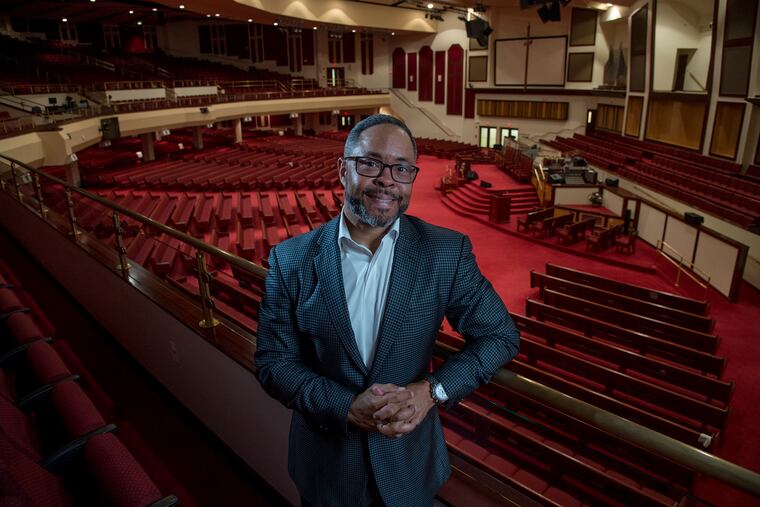Enon pastor’s COVID diagnosis shows the benefit of being tested even if you’re asymptomatic | Jenice Armstrong
The Rev. Alyn E. Waller submitted to nasal swab testing for the coronavirus Monday because he felt it would set a good example for the thousands of members of his church. Two days later, he learned he had tested positive.

I wish I could get tested for the coronavirus.
But I am not coughing, and I don’t have a fever. Health officials say that if you have not experienced any symptoms and have not been exposed to someone with COVID-19, you don’t need to be tested. So I’ve been sitting back and waiting.
Same thing for the Rev. Alyn E. Waller, senior pastor of Enon Tabernacle Baptist Church. He felt fine and had no plans to get checked for the coronavirus. Then, on a whim, he decided to participate in Monday’s free on-site testing in the church parking lot, conducted by Dr. Ala Stanford and the Black Doctors COVID19 Consortium.
Two days later, the 56-year-old learned he had tested positive.
“I was really surprised. The first thing that went through my mind was, ‘Maybe you got me mixed up with somebody else,’" Waller told me. “I think I’ve been being responsible in terms of how I have been going. I just wasn’t expecting that I would be positive.”
So far, Waller feels fine, except for vague discomfort in his throat.
» READ MORE: Council was wise to enlist social media stars and pro athletes in fight against coronavirus | Jenice Armstrong
“I feel a little different this morning. I still feel fine,” he said. "I don’t have fever. I noticed that my throat seems to be just a little — I won’t even call it painful — just a little something.… This stuff could be in my head.
“But the main thing that I want somebody to know is that I was asymptomatic. Being asymptomatic, I could have passed this to somebody,” he added. “And that’s why everybody needs to get tested.”
He’s right about that.
Most of the spread of the virus is by infected people who don’t get sick. But unless carriers develop symptoms or undergo testing, they may never know, which is troubling.
According to the Centers for Disease Control and Prevention, the highest priority for testing should go to hospitalized patients and health-care workers, followed by high-risk individuals with symptoms who are 65 or older or in long-term care. Those like Waller, who are asymptomatic, are supposed to be at the lowest level of priority for testing.
Luckily for him, he was tested anyway.
Waller is now self-quarantining in his man cave at his Main Line home and counting down the days of his confinement.
» READ MORE: This doctor deserves a standing ovation for her swift response to the coronavirus crisis | Jenice Armstrong
“What I was told is that it’s 10 days if I remain asymptomatic," Waller said. “It’s 14 days until I can come out if I have symptoms. And that’s one of the challenges, because I’ve been told three different things by three different professionals.… There’s a lot that they just don’t know and are not agreed upon."
He is concerned about possibly emerging from his quarantine without having undergone additional testing.
“Unless I press for it, and I will, there’s no protocol for me to be tested again,” Waller said.
“That has to do with capacity and supply, and that has to do with the national response," Waller added. "Until we get to the place where somebody tests positive, they quarantine, and then when it’s time for them to receive another test, and they can go to their primary-care physician and get tested again, then we as a country are not ready for this pandemic.”
Things are a little better.
Testing for COVID-19 in the United States has gone from practically nonexistent to being more available, but still is being severely rationed. The number of tests per day has plateaued at about 145,000, according to the COVID Tracking Project.
Meanwhile, Enon has closed for cleaning.
On Sunday, Waller will preach from his living room, using a backdrop from the Zoom videoconferencing system.
It will be a first for the megachurch pastor, as well as a powerful reminder about the urgent need for testing not just people with symptoms, but every single one of us.